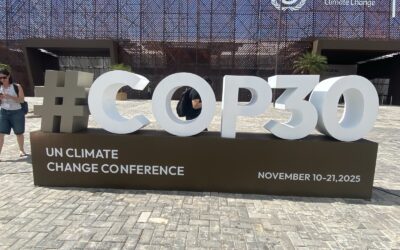The undersigned NGOs, Indigenous Peoples’ Organizations and social movements call upon the European Union and EU member states to halt and reverse the expansion of large-scale wood-based bio-energy production as well as the development of wood-based agrofuels.
Bio-energy promotion is based on a severe underestimation of the direct and indirect impacts of large-scale bio-energy production on forests and forest peoples. Large-scale, industrial bio-energy bears little resemblance to traditional and other local uses of biomass, which are an essential source of energy for local communities, especially in developing countries. Replacing highly energy-dense fossil fuels with plant materials requires far more land per unit of energy than almost all other types of energy.
Much greater pressures on forests and other ecosystems, on soils and freshwater as well as more land-grabbing for tree plantations are the certain consequence of a new global market in wood for bio-energy. The main victims are Indigenous Peoples and other forest-dependent peoples in the South, in particular women, who depend on access to forests for fuelwood and other local bio-energy sources for their families.
It is widely, yet wrongly, assumed that wood power stations burn only ‘residues’, such as sawdust, mill ends, branches and trimmings, rather than whole trees. Even the use of such residues is problematic since materials, such as sawdust, are often already in demand for low-grade wood products. Burning residues for heat and electricity displaces other demand and can thus trigger more industrial logging and plantation expansion.
Furthermore, deadwood, branches, leaves and twigs and even tree stumps are increasingly defined as ‘residues’ even though they are essential for recycling nutrients and thus for keeping soils fertile, for biodiversity and for carbon storage. Moreover, the demand for wood biomass far outpaces the production of “residues”, thus increasingly whole trees are being turned into woodchips and pellets for power stations. The demand for industrial wood bio-energy is beginning to cause large areas to be taken over by monoculture tree plantations.
Despite plantation expansion and destructive levels of logging and ‘residue removal’, the EU is nowhere near capable of providing enough wood biomass to satisfy its’ own demands for bio-energy as well as other uses. As a result, competition for wood biomass is escalating. Most European wood imports for bio-energy still come from North America, but European demand competes with North America’s own wood bio-energy expansion as well as with previously established pulp and paper manufacturers. This displacement of North American paper production increases the likelihood of massive pulp mill and plantation expansion in South America, South-east and East Asia and southern Africa as well as in Russia. Moreover, expansion of tree plantations explicitly to meet new bio-energy demands has already been reported from, amongst others, West Papua, the Republic of Congo and Guyana.
The demand for wood (and other forms of biomass) will rise even further if ‘second generation’ agrofuels become commercially viable. So far, these liquid fuels remain largely in the research and development phase, but biotech firms, pulp and paper companies and oil firms have joined forces to invest billions of dollars into research on wood-based agrofuels, including through research in genetically engineered trees.
Genetically engineered trees pose a major new threat to forests, forest-dependent communities and the climate. It is impossible to predict the impacts of GE trees because unexpected mutations are the norm rather than the exception with all genetically engineered plants. Trees can spread themselves across large areas. GE trees can therefore easily establish themselves in native forests and/or cross-fertilise with native trees. Unstable low-lignin trees are being engineered for cellulosic ethanol production whereas fast-growing and cold-resistant trees are attractive for wood bio-energy for heat and electricity.
The European debate regarding biomass has so far largely focused on sustainability standards – which the European Commission has, for the time being, ruled out as far as EU-wide standards are concerned. The question whether a further massive increase in Europe’s demand for wood can possibly be met sustainably if one takes into account all the indirect impacts, particularly in a global market, has been largely ignored in the policy debate. Yet no standard can prevent higher prices for wood driving plantation expansion and increased logging elsewhere in the world. The wider, indirect, impacts of ecosystem conversion to industrial monoculture plantations and greater and more destructive logging of natural forests are likely to be equally severe as the indirect impacts of agrofuels have proven to be.
By driving up the European demand and the global price for wood industrial bio-energy is set to increase land grabbing and speculation for tree plantations, expand destructive logging and speed up the conversion of biodiverse native forests to monoculture tree plantations.
That is why the undersigned groups call upon the EU to immediately abandon all support measures for large-scale wood-based bio-energy and agrofuel production.
Signed by:
A.W.A.R.E. eV., Germany
Acción Ecológica, Ecuador
Africa Europe Faith and Justice Network, Belgium
Agribusiness Action Initiatives, Latin America
Amazon Fund
Amazon Fund International
Amigos de la Tierra, Spain
ARA/Arbeitsgruppe Regenwald, Germany
Asociacion ANDES, Peru
Asociacion Cultural Mazarribah, Spain
Asociacion Indigena Ambiental, Panama
Barker & Sheldon Ltd, UK
Berne Declaration, Switzerland
Bharat Jan Vigyan Jatha, India,
South Asian Dialogues on Ecological Democracy, India
Biofuelwatch, UK
Biomass-in-Pankow, Germany
Bismarck Ramu Group, Papua New Guinea
BUND Neu-Isenburg
Bureau for Regional Outreach Campaigns, Russia
CADDE, Gabon
Canadians for Action on Climate Change
CENSAT Agua Viva/ Friends of the Earth-Colombia
Centro Humboldt, Nicaragua
CESTA, El Salvador
Circle for Humanity, Netherlands
CODEFF, Chile
Corporate Europe Observatory
Ecological Internet USA and Papua New Guinea
Ecological Society of the Philippines
Ecology Action Centre, USA
Ecoropa, Germany
European Consumers for the Promotion of Sustainable Energy in Europe
FASE, Brazil
Foundation Pro Papua, the Netherlands
Friedens- und Begegnungsstatte Mutlacher, Germany
Friends of Peoples close to Nature, Germany
Friends of the Earth International
Friends of the Earth-Sierra Leone
Friends of the Siberian Forests, Russia
Fundacion para la Promocion del Conocimiento Indigena, Panama
GenderCC, Germany
Genesis Farm, USA
Global Forest Coalition
Global Justice Ecology Project, USA
GM Watch
GMX, Germany
Hababusch Hostel, Germany
Haverhill Environmental League, USA
Indienhilffe e.V., Germany
International Analog Forestry Network
Keep Trinidad and Tobago Beautiful, Trinidad and Tobago
Latino Club, Germany
Native Forest Council
Observatorio Latinoamericano de Conflictos Ambientales, Chile
Ojalá, Netherlands
Ole Siosiomaga Society, Samoa
Oregon Toxics Alliance, USA
Otros Mundos, Mexico
Pacific Indigenous Peoples Environment Coalition
Pacific Institute of Resource Management, New Zealand
Protect Ozark Wildlife and Rivers, USA
Provincial women, Russia
Pro-Wildlife, Germany
Rainforest Information Centre, Australia
RECOMA-Latin American Network against Monoculture Tree Plantations
REDES/Friends of the Earth-Uruguay
Rettet den Regenwald, Germany
Salva la Selva, Spain
Savia, Escuela de Pensamiento Ecologista, Spain
Sobrevivencia/Friends of the Earth-Paraguay
Society for Threatened Peoples International
SOSNA Association, Slovak Republic
Stichting Tierra Nossa, Netherlands
Sustainability Watch Network Central America
Timberwatch Coalition, South Africa
Union Paysanne, France
Viola, Russia
WeForest, Netherlands
XminY solidarity fund, the Netherlands
Individuals:
Knut Steffen, Marketingberating Gartenbau, Germany
Professor Helmut Burkhardt, Ryerson University, Ontario, Canada




